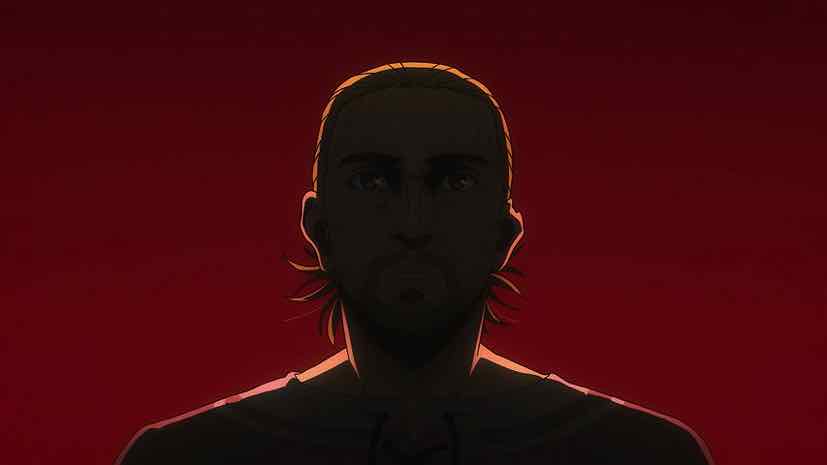 As thematically dense as this series is, there are obviously a lot of different strands to the story’s fabric. But one thing Yukimura Makoto is definitely exploring here is the impact slavery has on everyone involved with it. This stands as especially relevant given that anime (almost entirely driven by light novels) is in a phase of romanticizing slavery in a frankly pretty gross and disgusting way. This is something historians have known for a very long time – slavery is a toxin. It poisons and warps everyone and everything it touches. The slaves, those who trade them, and those who profit by the trade (and turn a blind eye to it).
As thematically dense as this series is, there are obviously a lot of different strands to the story’s fabric. But one thing Yukimura Makoto is definitely exploring here is the impact slavery has on everyone involved with it. This stands as especially relevant given that anime (almost entirely driven by light novels) is in a phase of romanticizing slavery in a frankly pretty gross and disgusting way. This is something historians have known for a very long time – slavery is a toxin. It poisons and warps everyone and everything it touches. The slaves, those who trade them, and those who profit by the trade (and turn a blind eye to it).
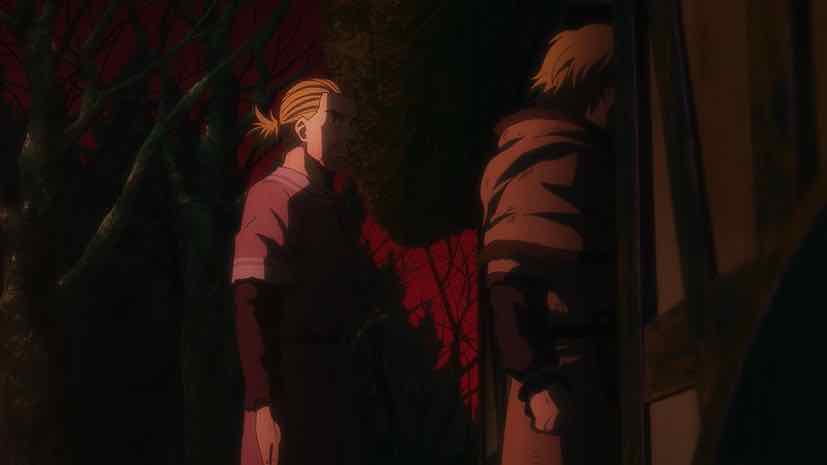 Added to that, Thorfinn being broken complicates matters even further. His nightmares are such a regular occurrence that Einar has taken to stoically riding them out until Thorfinn wakes up. He’s even remembering bits and pieces of them – like falling down a cliff, with hands from below reaching to pull him down into Hell. There have been hints that Thorfinn has gaps in his memory; that’s more or less confirmed now. He does remember Askeladd, and the fundamentals of their complicated relationship. But there’s something else important he knows he’s forgetting, “like a fish bone stuck in his throat”.
Added to that, Thorfinn being broken complicates matters even further. His nightmares are such a regular occurrence that Einar has taken to stoically riding them out until Thorfinn wakes up. He’s even remembering bits and pieces of them – like falling down a cliff, with hands from below reaching to pull him down into Hell. There have been hints that Thorfinn has gaps in his memory; that’s more or less confirmed now. He does remember Askeladd, and the fundamentals of their complicated relationship. But there’s something else important he knows he’s forgetting, “like a fish bone stuck in his throat”.
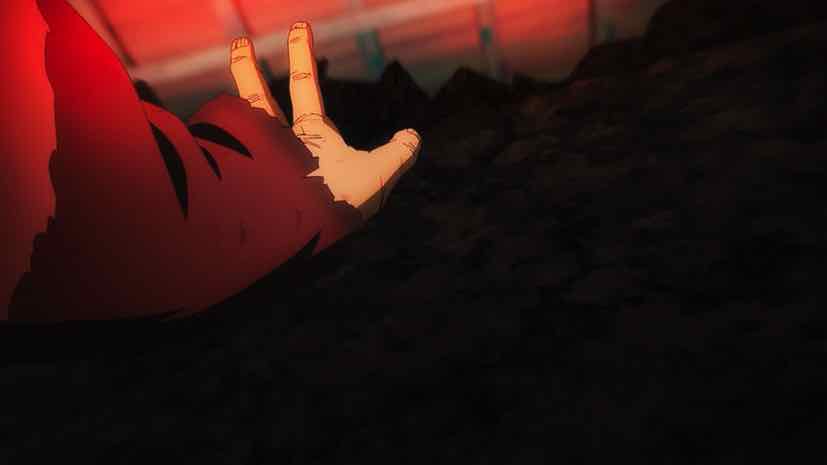 Basically, there are two runaway trains (apologies for the anachronous metaphor) headed straight for each other – and Thorfinn is the collision point. His past is a relentless beast, consuming a little part of him every night until he’s finally about to confront it. And the miasma of his slave life is ever a presence and a threat. As is so often the case it manifests here in the form of the retainers, resentful of the fact that the slaves’ wheat field is thriving under Einar’s care. The downside of Ketil being such a pushover is that men like the retainers have little fear of repercussions for going against his wishes (which is unfortunate for the slaves he’s relatively kind to).
Basically, there are two runaway trains (apologies for the anachronous metaphor) headed straight for each other – and Thorfinn is the collision point. His past is a relentless beast, consuming a little part of him every night until he’s finally about to confront it. And the miasma of his slave life is ever a presence and a threat. As is so often the case it manifests here in the form of the retainers, resentful of the fact that the slaves’ wheat field is thriving under Einar’s care. The downside of Ketil being such a pushover is that men like the retainers have little fear of repercussions for going against his wishes (which is unfortunate for the slaves he’s relatively kind to).
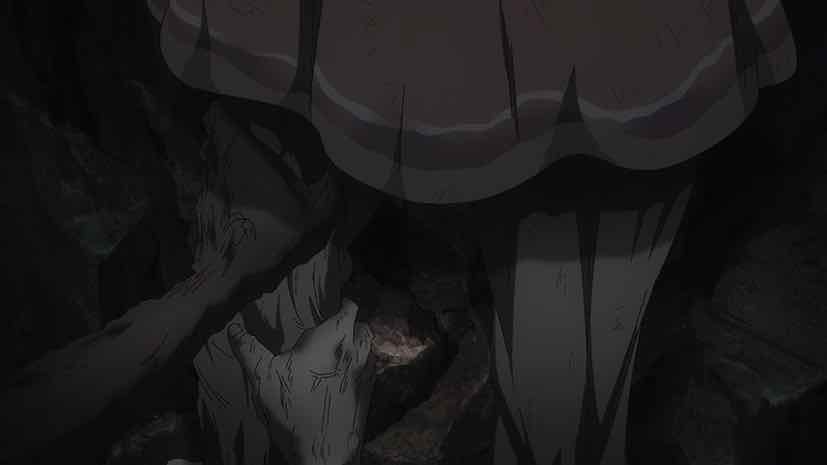 The sickness pervades everything. Ketil may be kinder than some – nay, most – men in his position. But it doesn’t matter really, because men like Fox and Badger and the retainers expand their atrocities to fill in the gaps Ketil leaves. And Ketil turns Arnheid into a sex slave (let’s not kid ourselves) because he can. And surely in his own mind it’s something very different – not “love” perhaps, but something consensual. It’s anything but – Arnheid has no choice, and she knows it. The poison spreads everywhere and contaminates everything.
The sickness pervades everything. Ketil may be kinder than some – nay, most – men in his position. But it doesn’t matter really, because men like Fox and Badger and the retainers expand their atrocities to fill in the gaps Ketil leaves. And Ketil turns Arnheid into a sex slave (let’s not kid ourselves) because he can. And surely in his own mind it’s something very different – not “love” perhaps, but something consensual. It’s anything but – Arnheid has no choice, and she knows it. The poison spreads everywhere and contaminates everything.
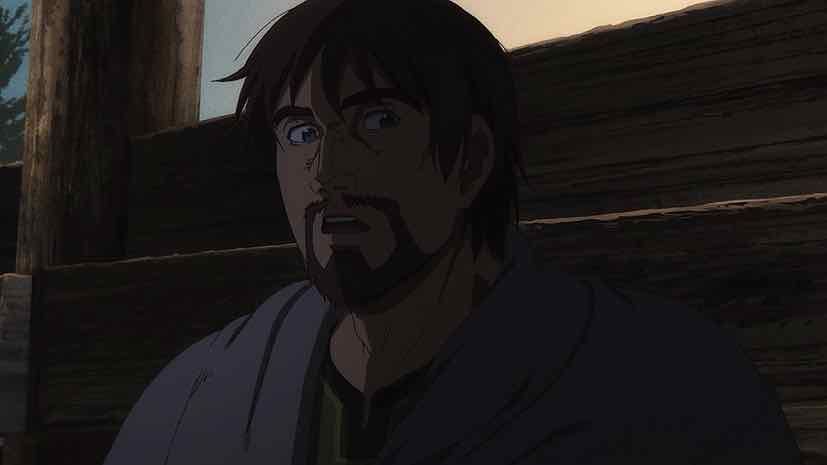 In this fetid swamp, men like Pater and Sverkel stand apart as individuals who at least try to rise above the waters. Sverkel tries in his own way to nudge Thorfinn forward – to fill the emptiness he feels inside him with new skills and ideas. The problem is that until Thorfinn decides that he’s worth the trouble – that being reborn is an even possible for him, and that he deserves to be even if it is – he’s locked inside his own prison. Einar believes in Thorfinn, but Thorfinn doesn’t believe in himself.
In this fetid swamp, men like Pater and Sverkel stand apart as individuals who at least try to rise above the waters. Sverkel tries in his own way to nudge Thorfinn forward – to fill the emptiness he feels inside him with new skills and ideas. The problem is that until Thorfinn decides that he’s worth the trouble – that being reborn is an even possible for him, and that he deserves to be even if it is – he’s locked inside his own prison. Einar believes in Thorfinn, but Thorfinn doesn’t believe in himself.
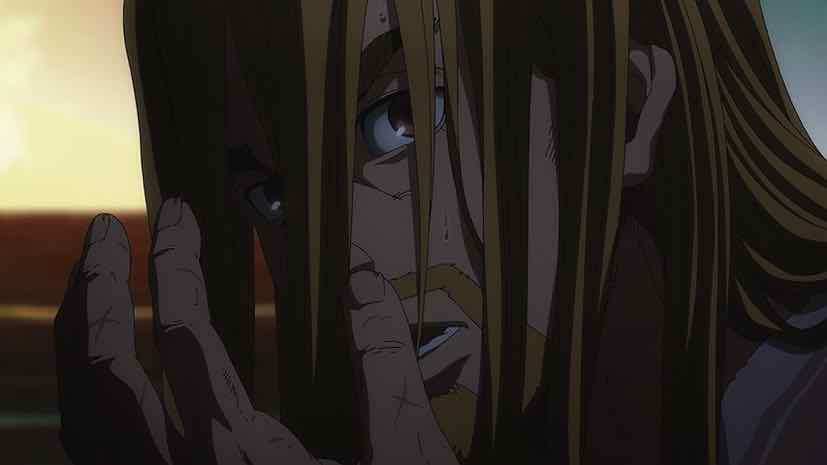 The retainers trashing Einar and Thorfinn’s field was inevitable – I’ve pretty much been waiting for it since the first episode. It was only a question of what the circumstances would be, and how the two of them would react. It’s an act of unspeakable cruelty and pettiness – but that’s exactly the point. When you view someone else as not human, there are no boundaries of cruelty or pettiness you’re unwilling to cross. In the moment, it’s Einar who snaps – Thorfinn is infuriatingly calm. Einar is an idealist, unfortunately for him – he has a strong sense of justice in a life where justice doesn’t even enter into the equation. Thorfinn won’t even allow himself the privilege of outrage, given what he’s done in his own past.
The retainers trashing Einar and Thorfinn’s field was inevitable – I’ve pretty much been waiting for it since the first episode. It was only a question of what the circumstances would be, and how the two of them would react. It’s an act of unspeakable cruelty and pettiness – but that’s exactly the point. When you view someone else as not human, there are no boundaries of cruelty or pettiness you’re unwilling to cross. In the moment, it’s Einar who snaps – Thorfinn is infuriatingly calm. Einar is an idealist, unfortunately for him – he has a strong sense of justice in a life where justice doesn’t even enter into the equation. Thorfinn won’t even allow himself the privilege of outrage, given what he’s done in his own past.
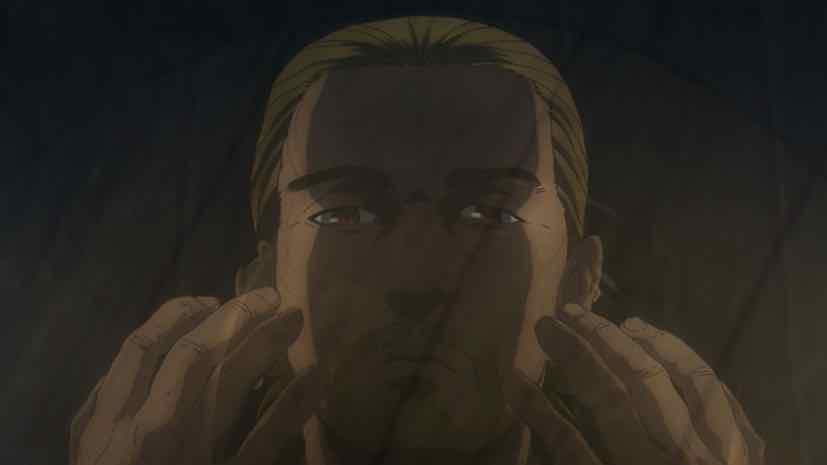 Certainly Thorfinn’s advice to take the matter to Pater was logical. And in truth it would probably have been best if Einar had taken Pater’s advice and let him sort out the matter. But the retainers goading the slaves into a confrontation was their endgame all along, because they know how it will turn out. Thorfinn finally snaps – seeing what Einar is about to do no doubt pushes him over the edge – and he hasn’t forgotten how to be a warrior, clearly. A resurgence of violence triggers all the ghosts of his past – this is the moment where those two trains collide at last.
Certainly Thorfinn’s advice to take the matter to Pater was logical. And in truth it would probably have been best if Einar had taken Pater’s advice and let him sort out the matter. But the retainers goading the slaves into a confrontation was their endgame all along, because they know how it will turn out. Thorfinn finally snaps – seeing what Einar is about to do no doubt pushes him over the edge – and he hasn’t forgotten how to be a warrior, clearly. A resurgence of violence triggers all the ghosts of his past – this is the moment where those two trains collide at last.
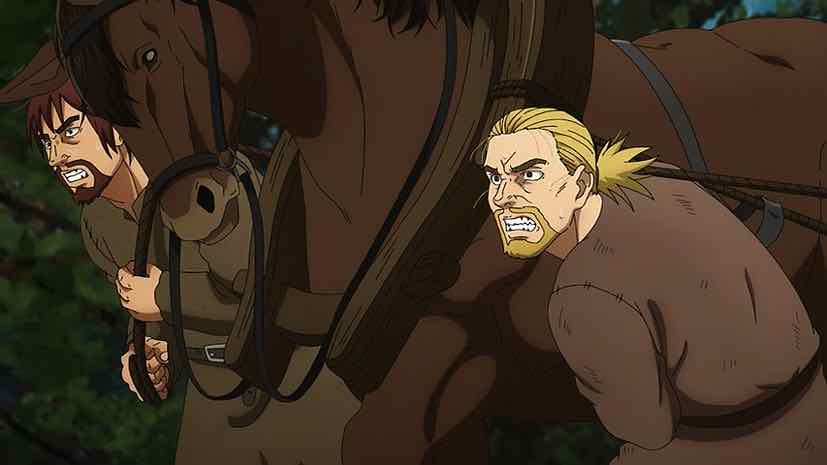 This is an incredibly grim scenario for Thorfinn and Einar, and another nightmarish situation for Ketil. This can only go one way, and justice has nothing to say in the matter. Pater and Sverkel might – especially the latter, who seems unlikely to care about the propriety of the situation. But he’s not the master of the farm now, Ketil is – and he’s the one who has to face the consequences if a slave is allowed to punch a free man and live to see another sunrise. Where this foul institution is concerned, atrocities are the norm.
This is an incredibly grim scenario for Thorfinn and Einar, and another nightmarish situation for Ketil. This can only go one way, and justice has nothing to say in the matter. Pater and Sverkel might – especially the latter, who seems unlikely to care about the propriety of the situation. But he’s not the master of the farm now, Ketil is – and he’s the one who has to face the consequences if a slave is allowed to punch a free man and live to see another sunrise. Where this foul institution is concerned, atrocities are the norm.


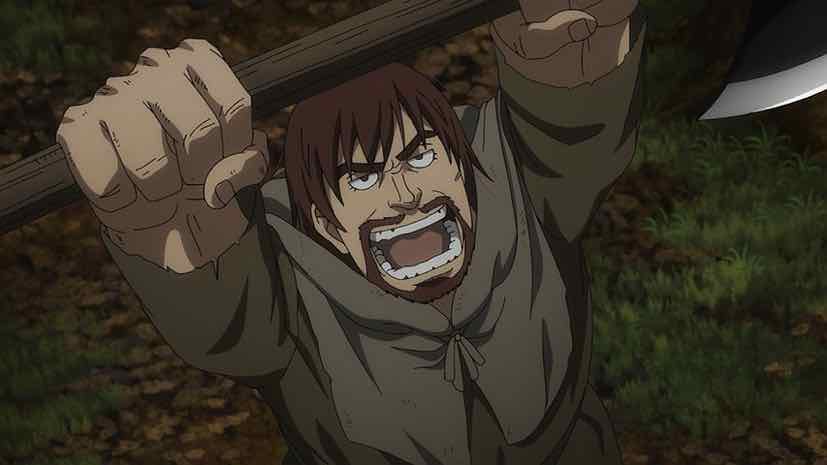
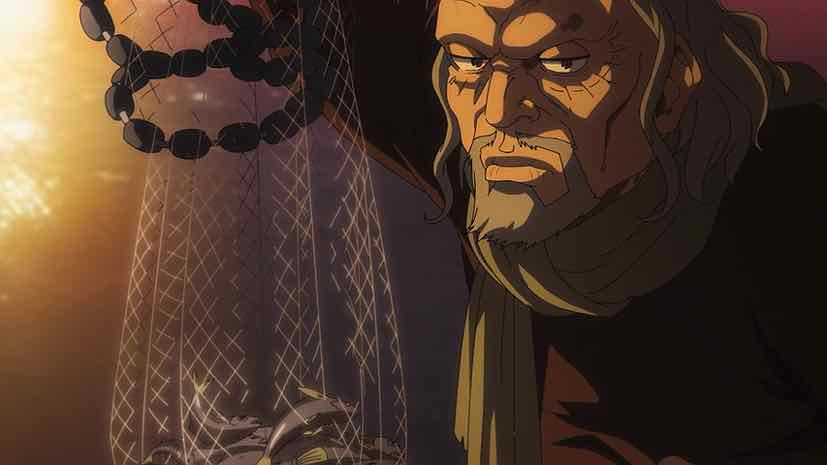
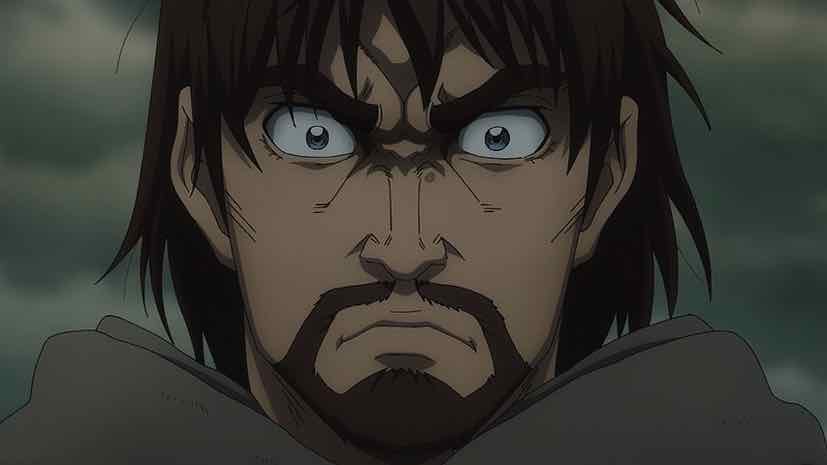
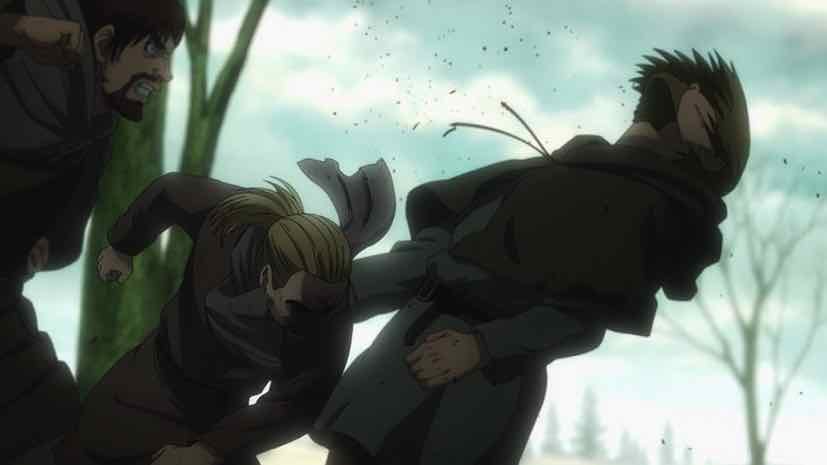
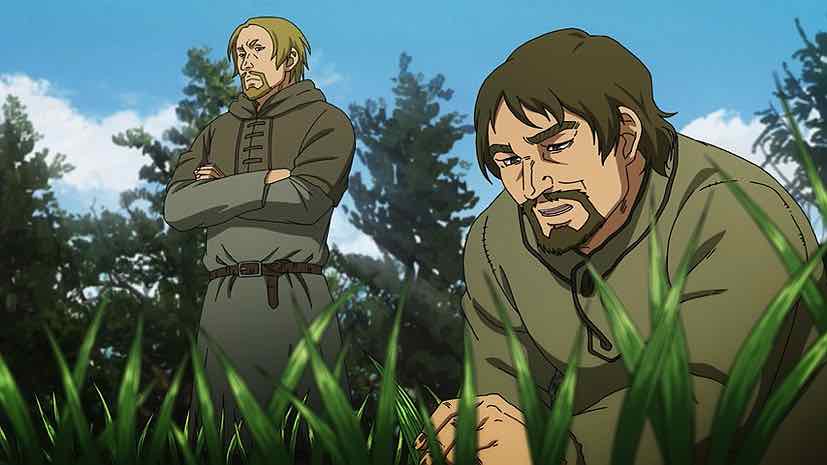
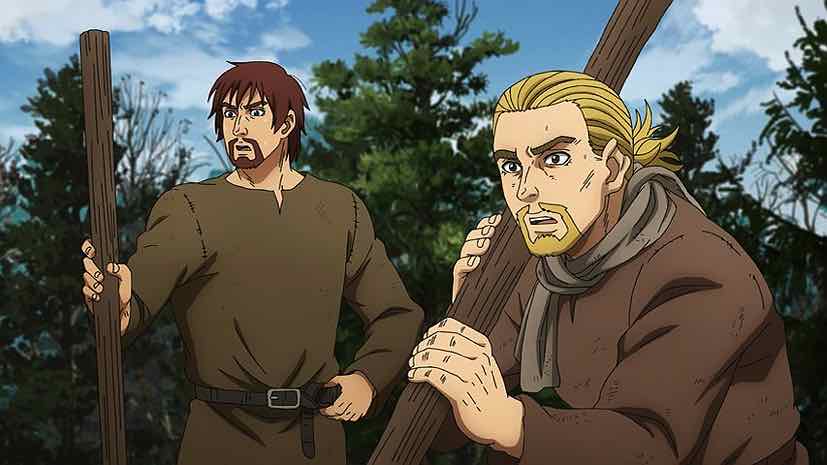
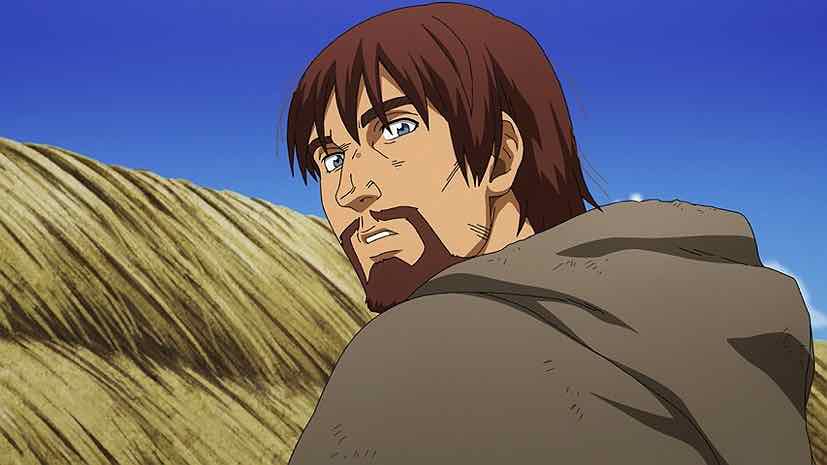
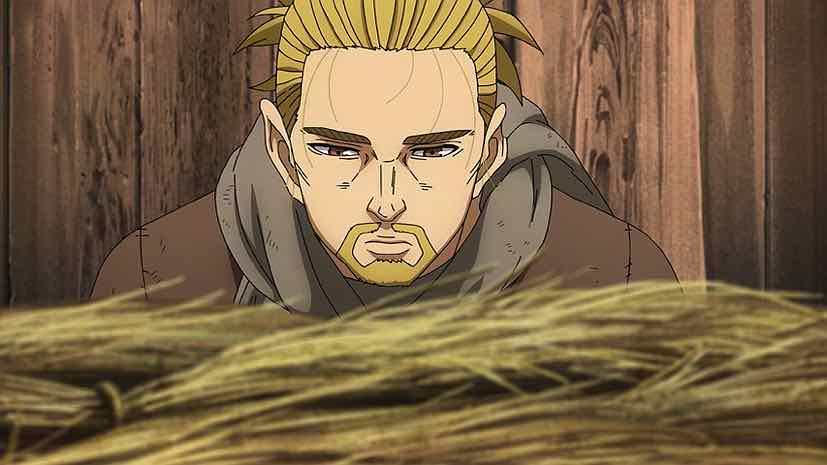
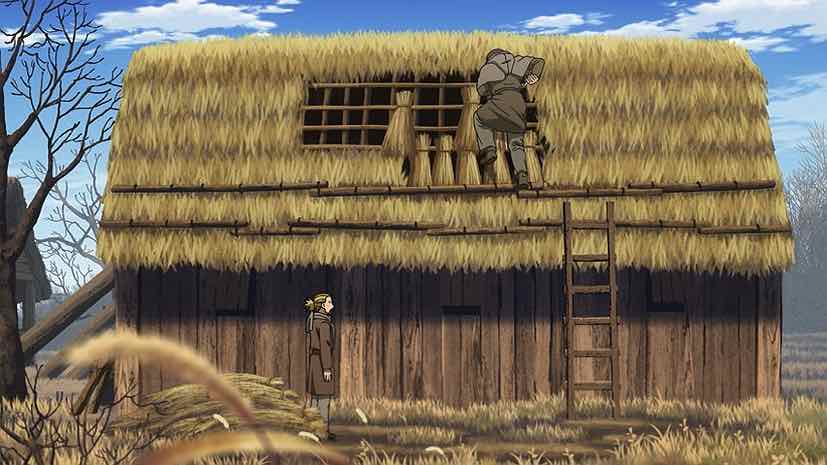
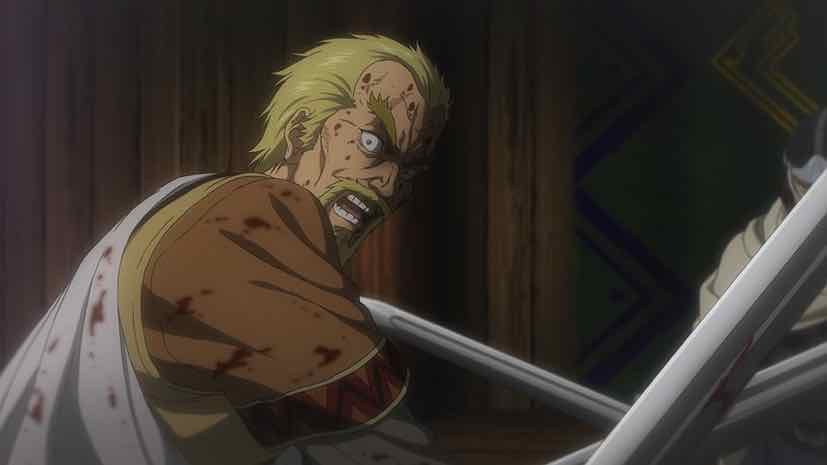
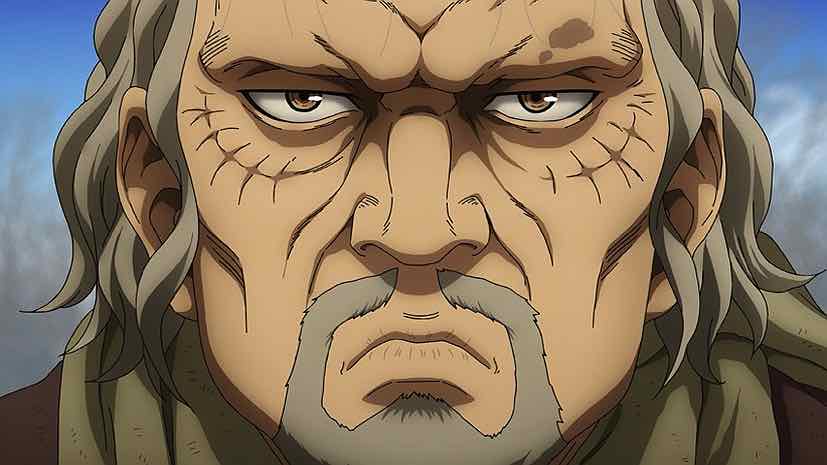
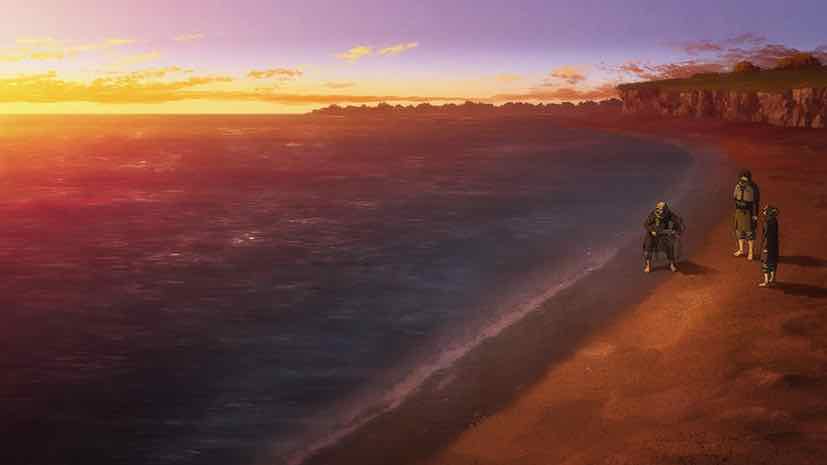
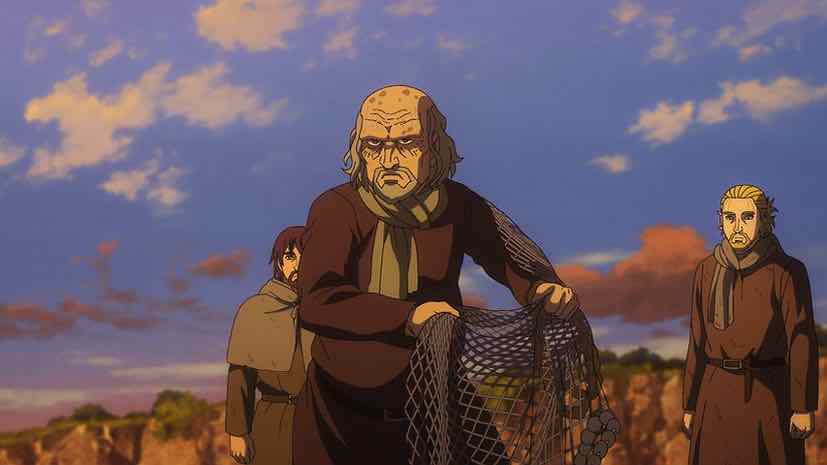

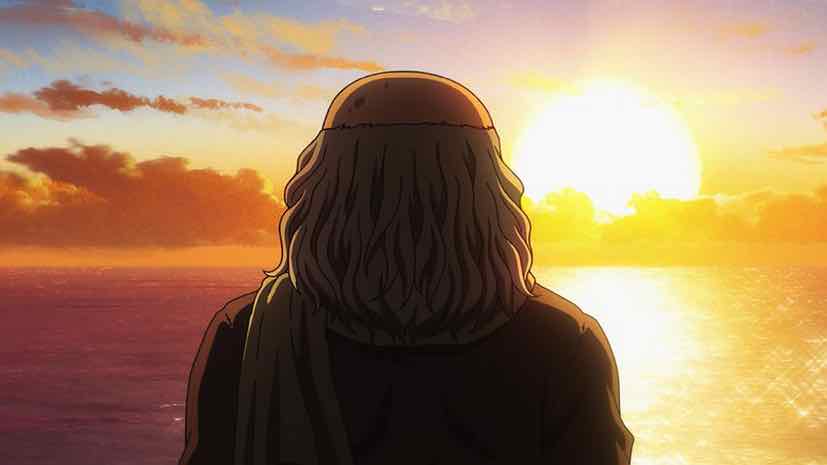
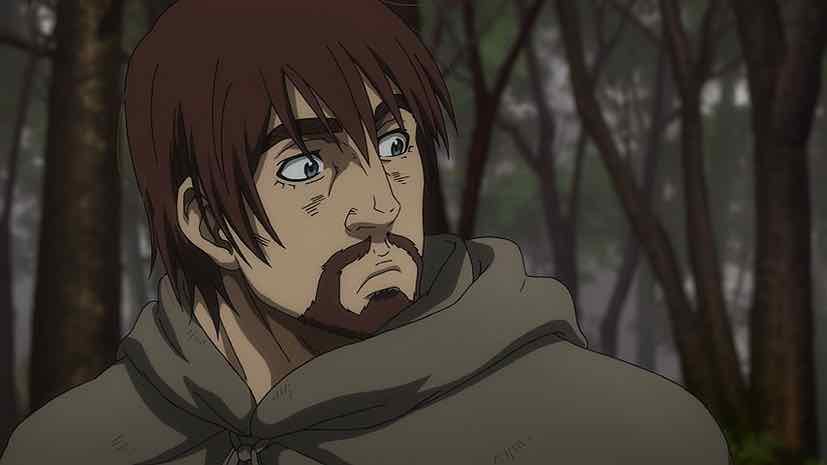
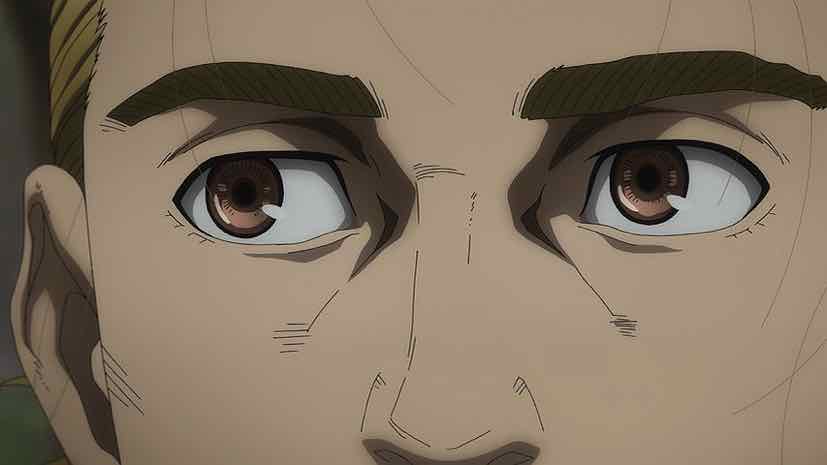
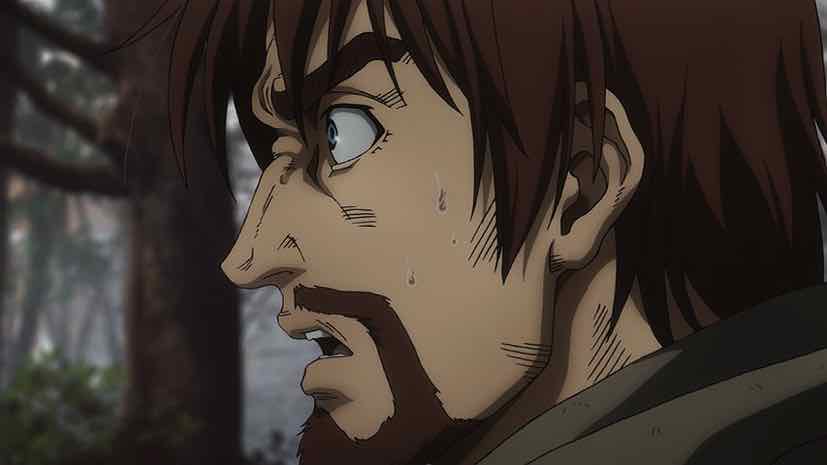
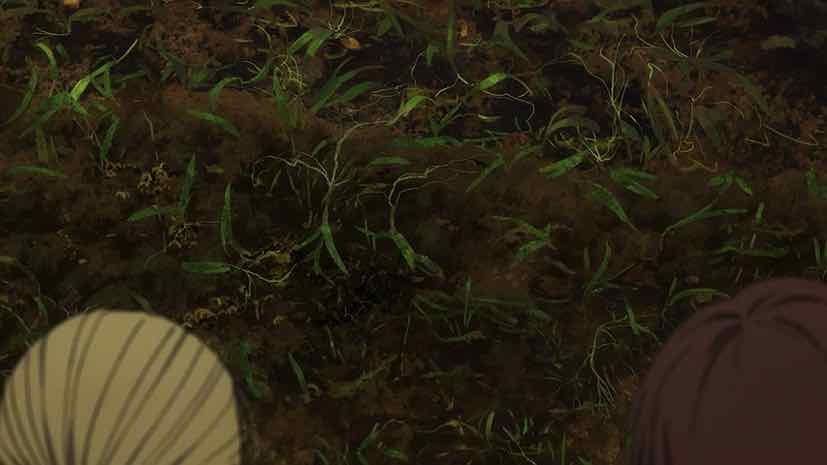
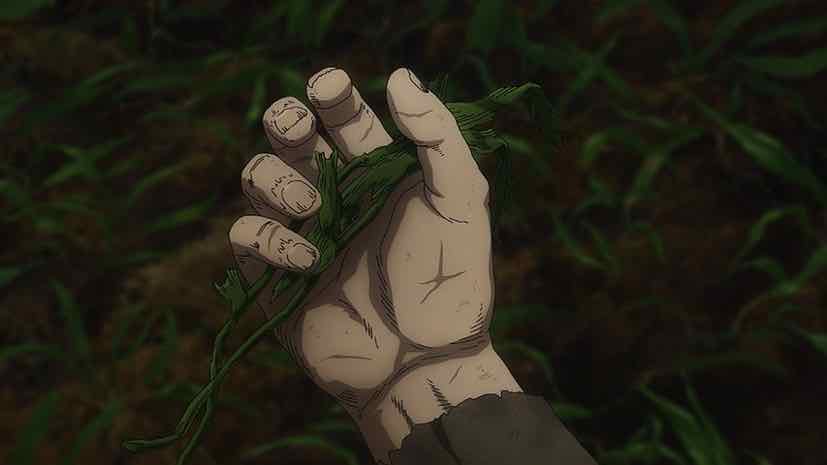
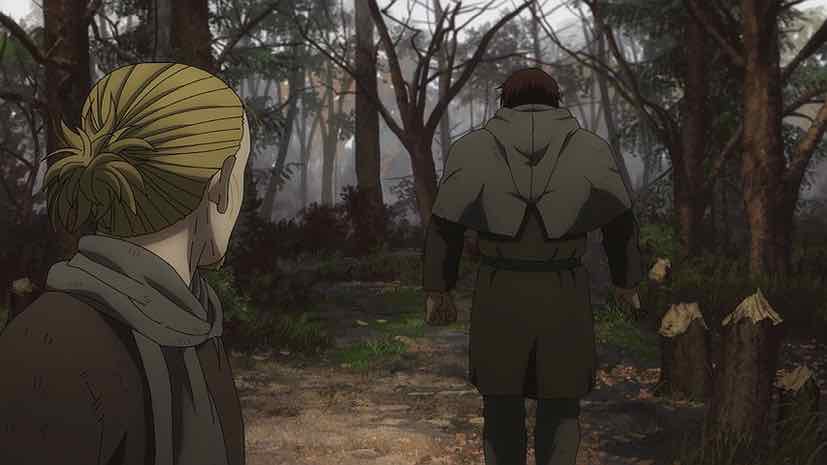
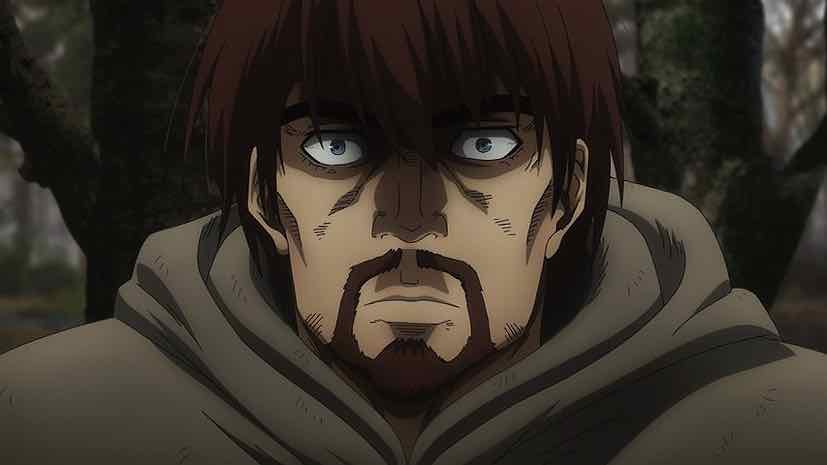
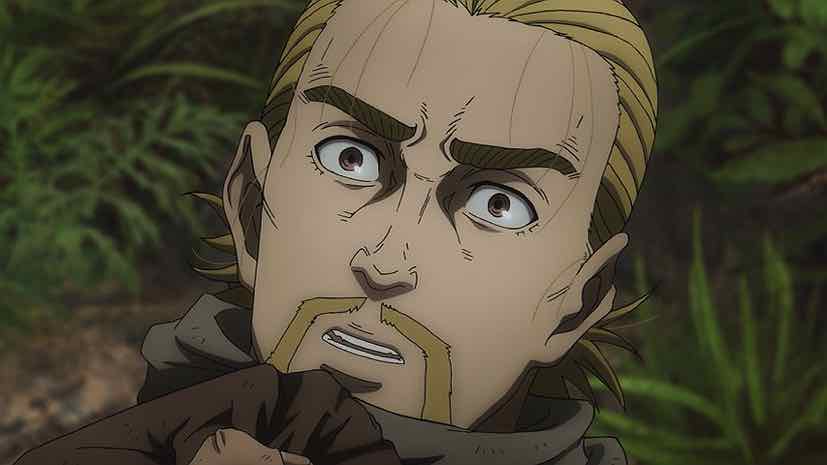
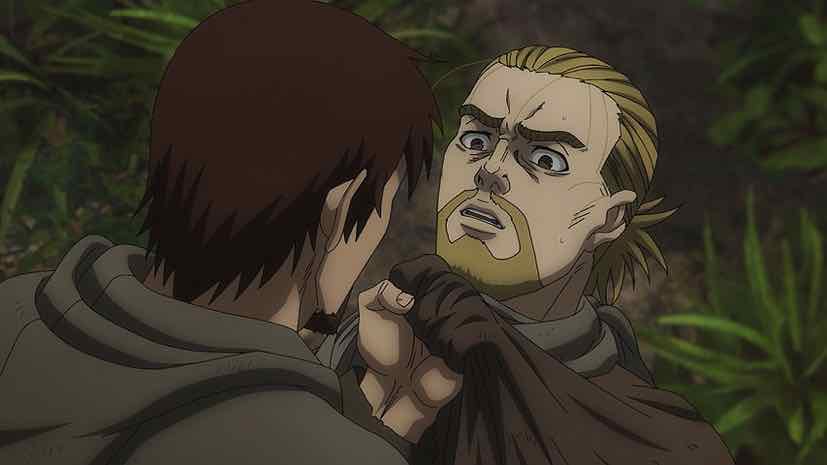
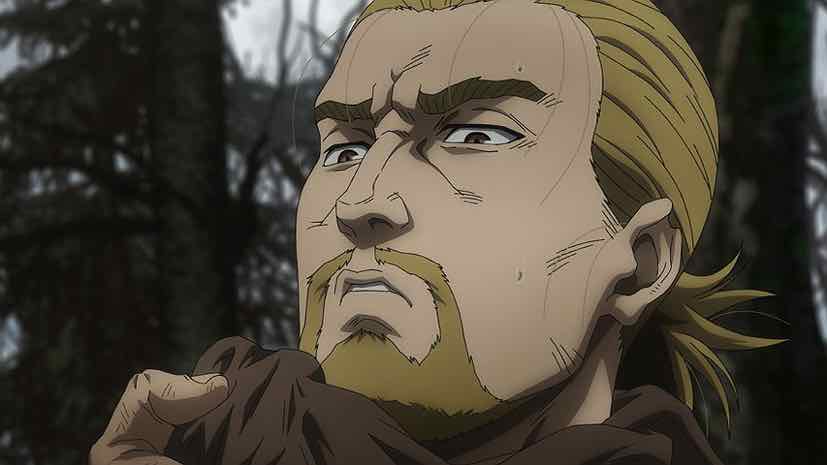
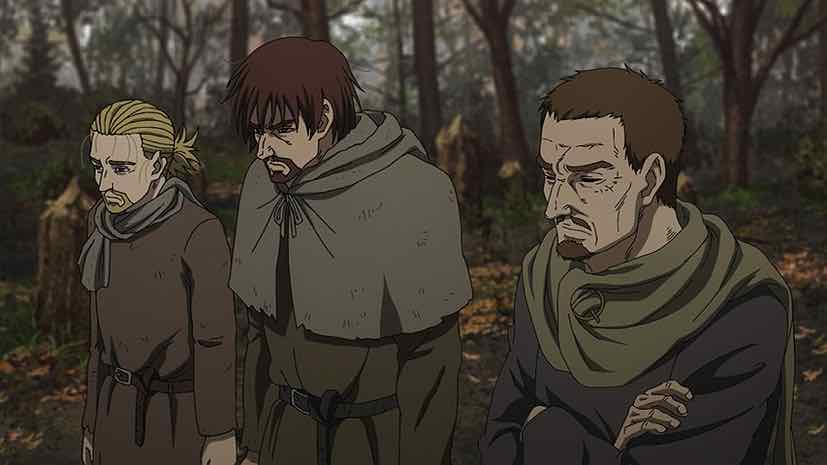
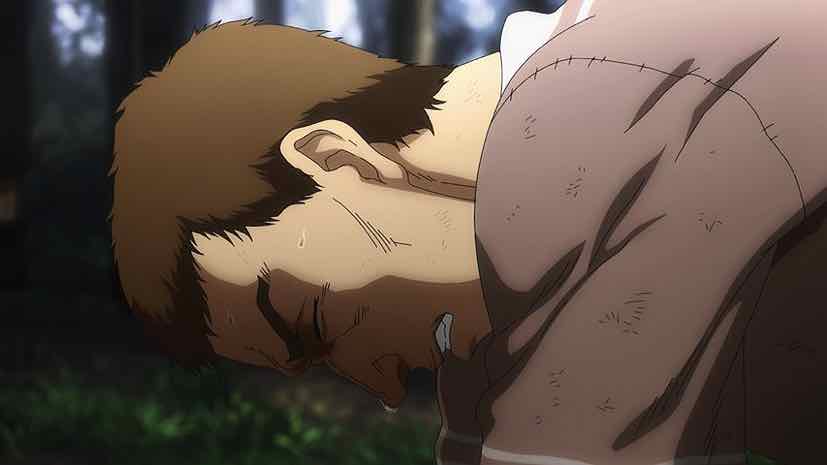
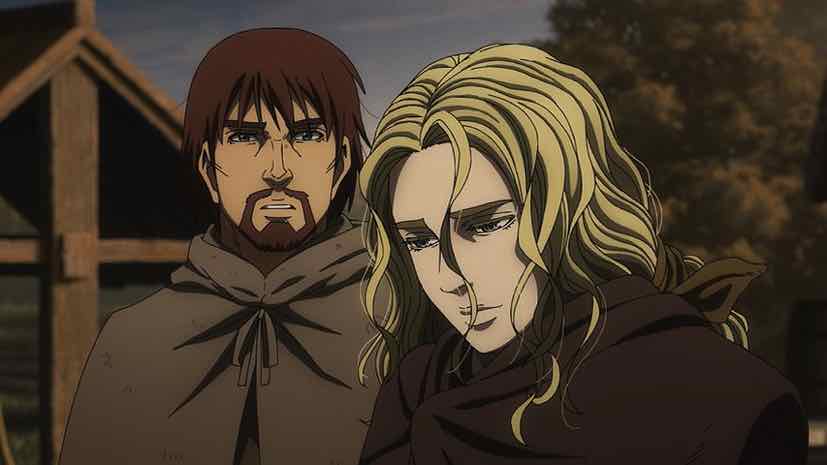
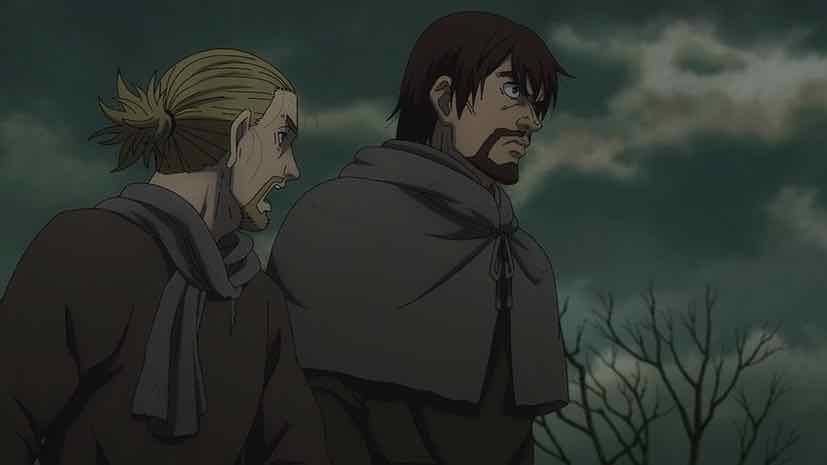
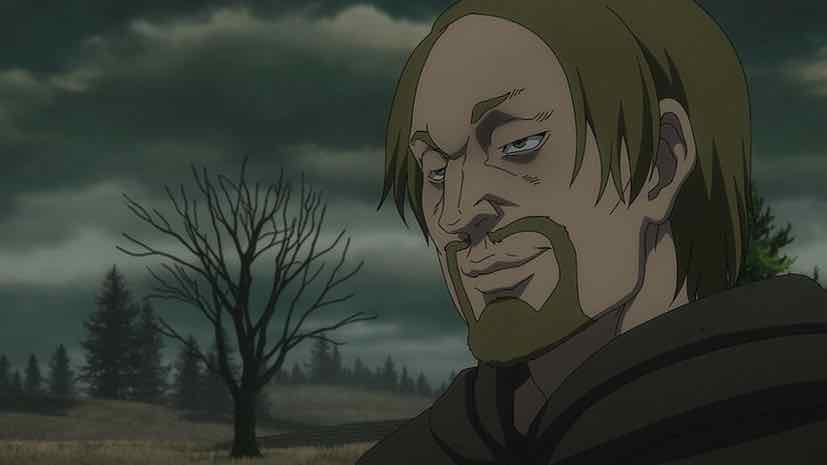
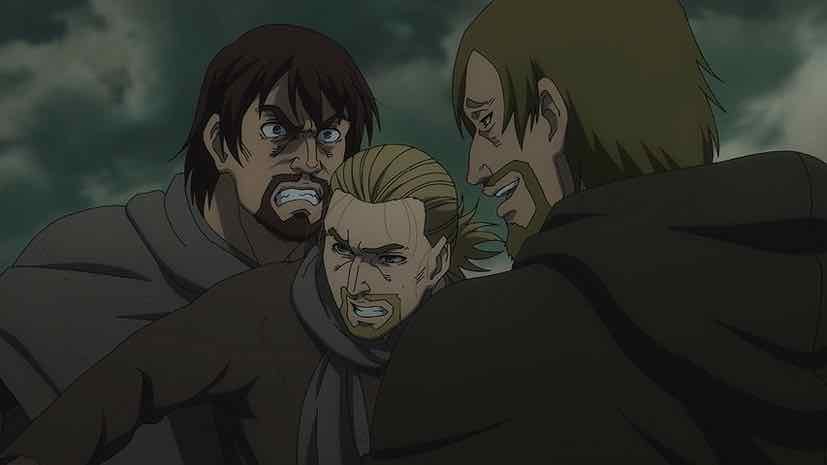
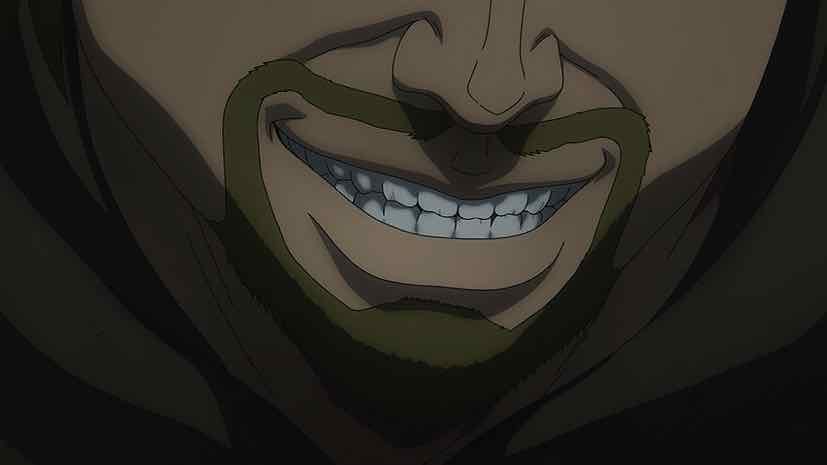
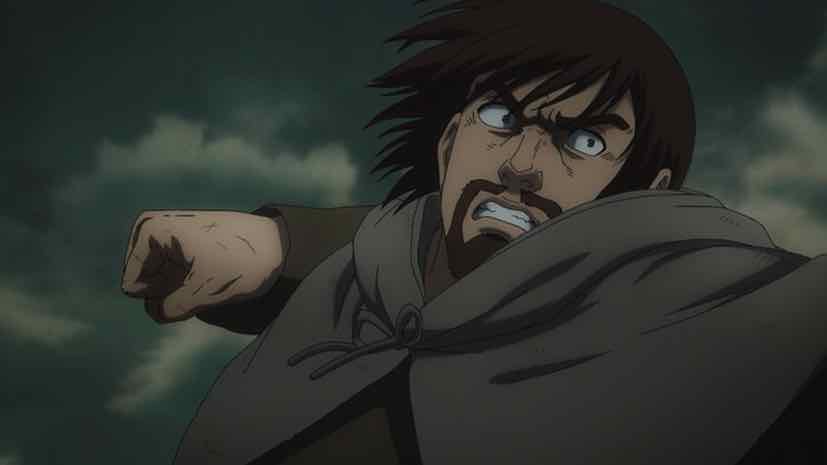
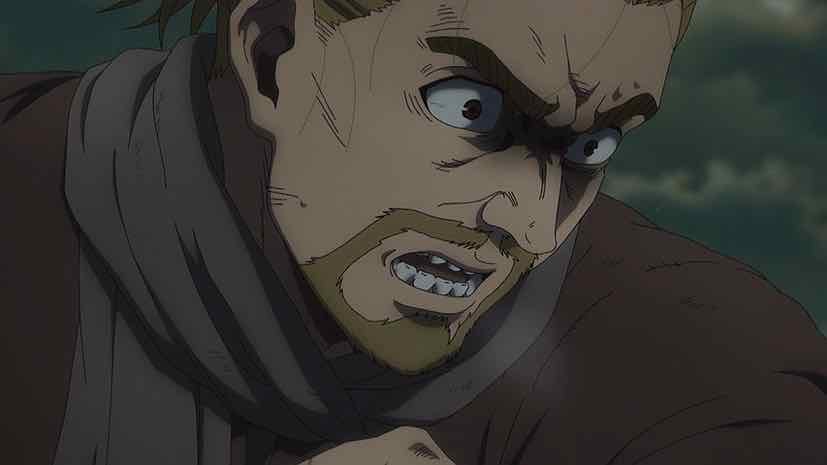
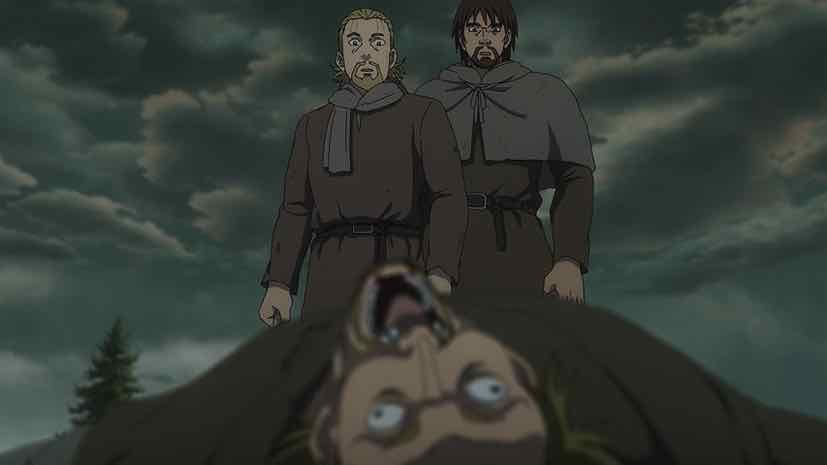
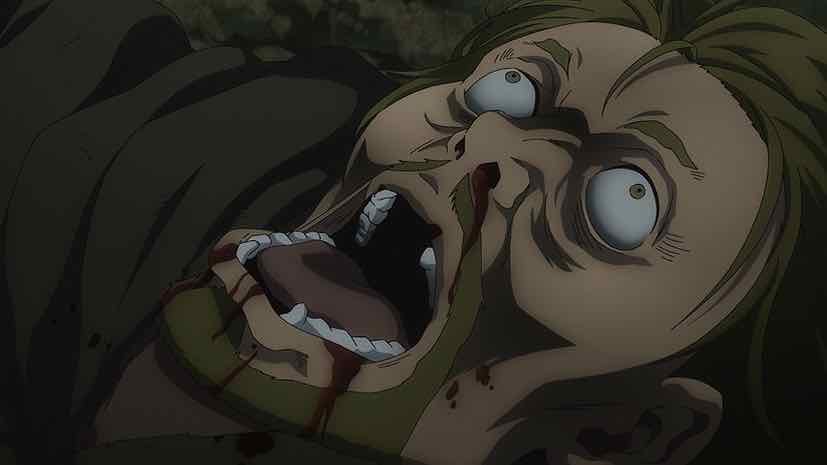
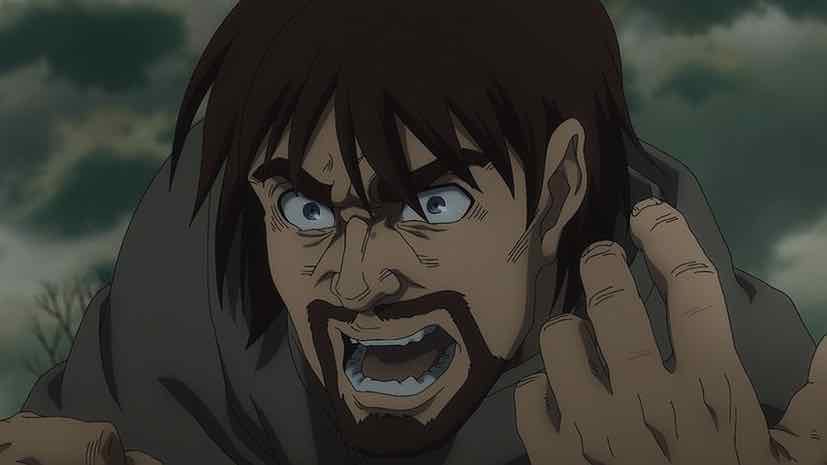
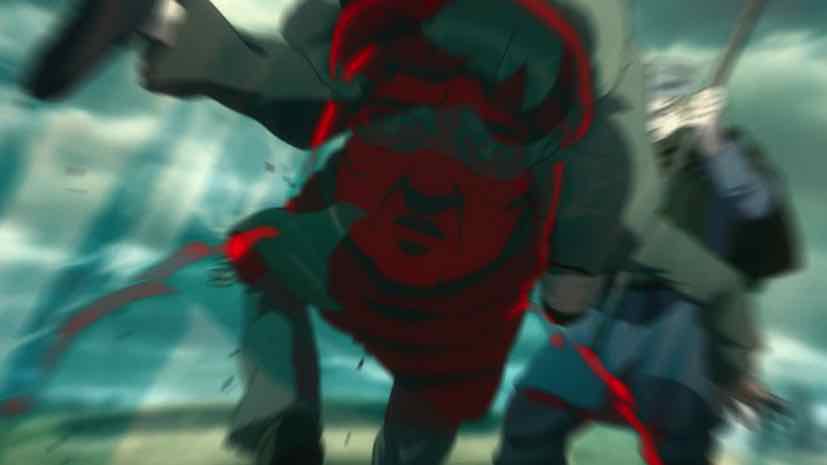
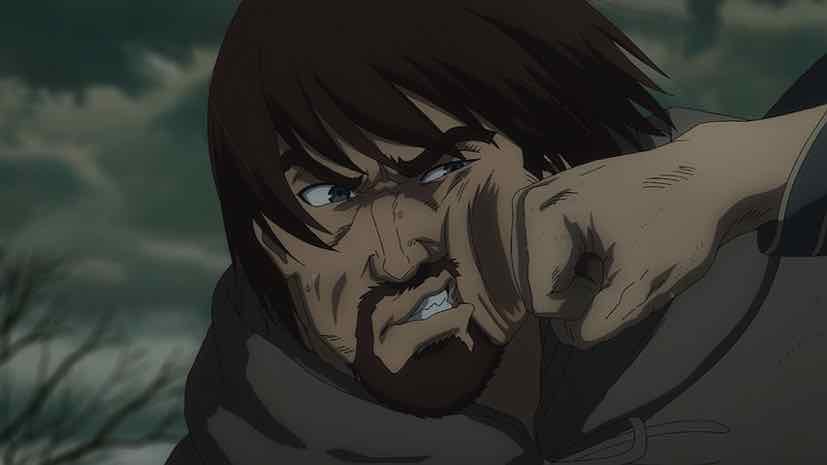
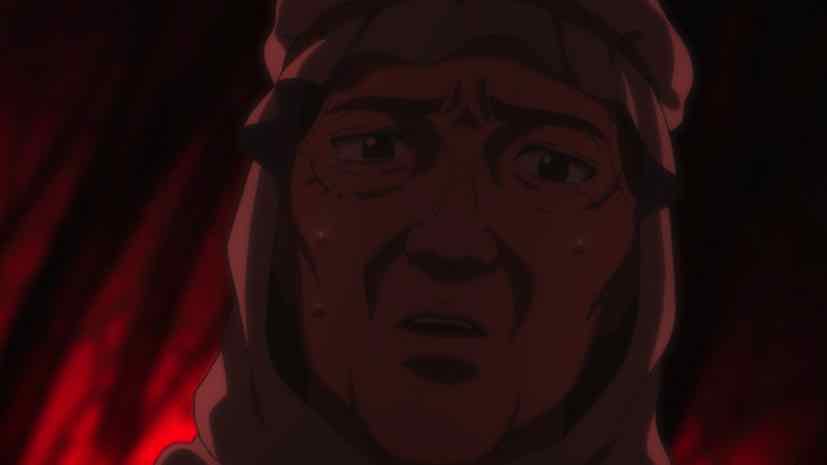
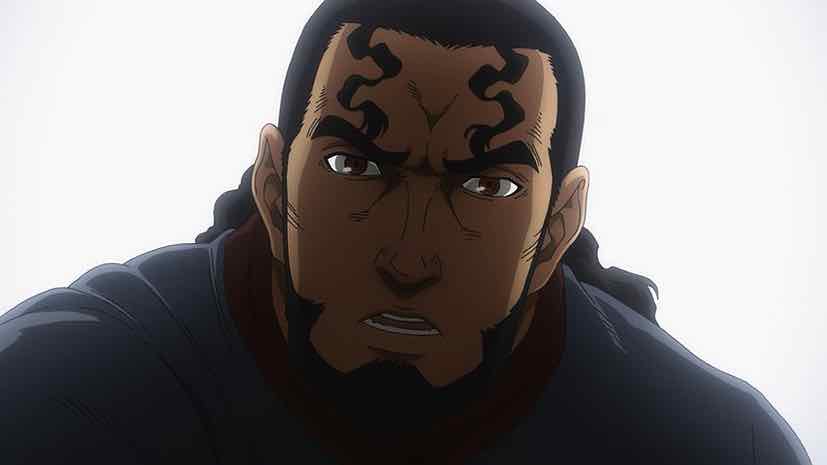
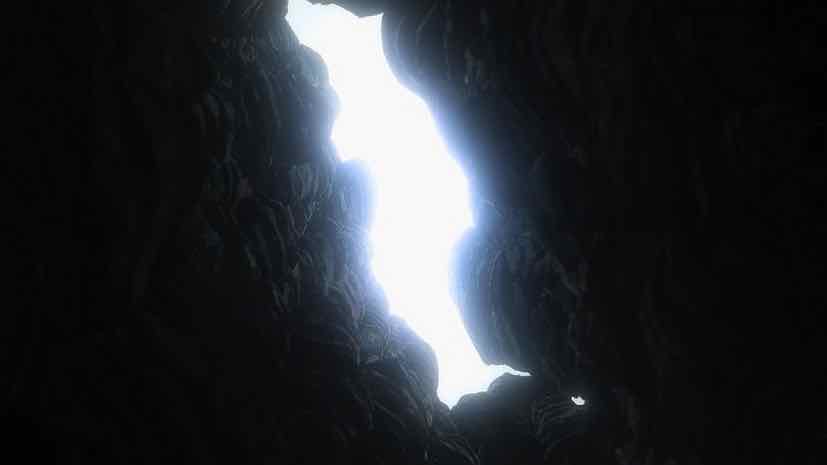
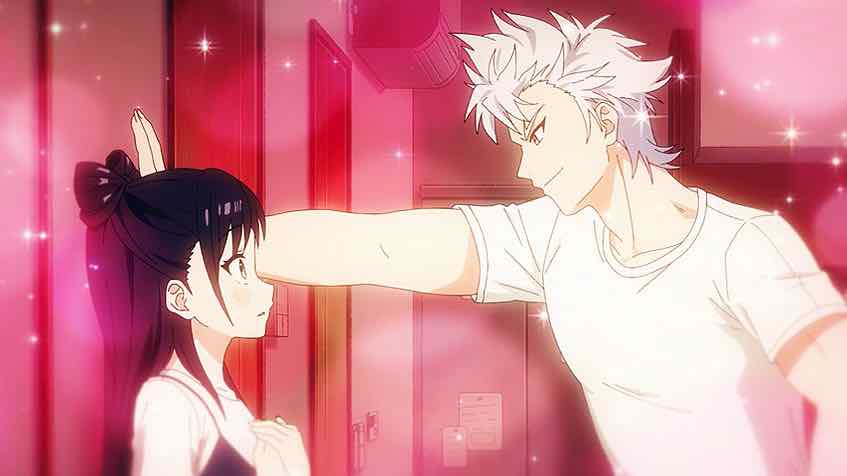
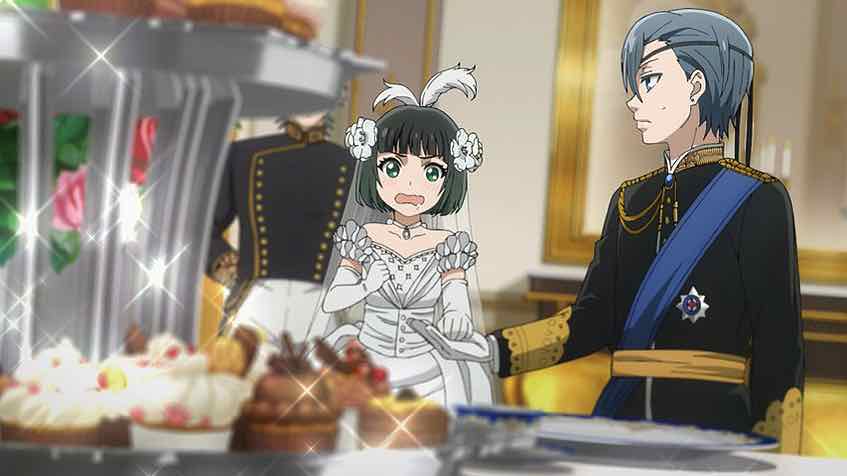
Marty
February 28, 2023 at 11:17 pmSomething that really struck me about this episode was the Christian Symbolism throughout. Yukimura is great at using it when it pertains to the larger themes of his story (such as in Canute’s awakening episode), which makes sense considering this time period is also the time when the Christianization of Norse culture is in full swing.
Einar and Thorfinn, like the Apostles before their calling, are fishing while listening to Sverkel’s wisdom. Thorfinn questioning whether someone who’s committed such acts of cruelty can be redeemed sounded very analogous to Paul’s journey in the New Testament.
However, these symbols aside, the episode tackles a fundamental truth too many people are willing to forget in one simple line.
When one of the retainers said something akin to, “slaves can’t outperform free men,” he gave the game away.
Something all too common in Southern Schools in America, specially those that subscribe to the “Lost Cause” myth, argue that the American Civil War couldn’t have been about slavery because “only the wealthy could own slaves” or “most white southerners never owned slaves,” but this ignores a fundamental truth, when slavery becomes a society’s economic backbone, it becomes interwoven within its social fabric.
Those that can afford slaves will protect the institution for financial reasons, and those who can’t but aren’t slaves will defend it for ideological and sociological reasons.
Yann
March 3, 2023 at 1:30 amI don’t necessarily disagree your overarching point, but let’s face it… The Civil War was about money/power, just like every single war in U.S. history.
Guardian Enzo
March 3, 2023 at 8:22 amAnd the primary financial and power factor driving it was slavery.
Confederacy apologists love to say “the Civil War wasn’t about slavery”, and that was always bullshit. Slavery was at the heart of everything that war was fought over.
Yann
March 3, 2023 at 11:40 amI’m not a confederacy apologist. I’m not even American… But the civil war was as much about slavery as Iraq was about freedom, or WWII about fighting Nazis, or Hiroshima/Nagasaki about making Japan capitulate, or Ukraine about saving Ukrainians, etc. etc. etc.
Guardian Enzo
March 3, 2023 at 11:59 amI am an American, an opinionated one, one who studied the Civil War in considerable detail, and I think you’re completely off base, ROFL. But probably best to leave it at that as this is an incendiary topic.
Howdy
March 3, 2023 at 12:38 pmActually I read that it was about slavery but not directly about abolishment of slavery in southern states, at least not originally. It was initially about whether new states added to the US in the West would be allowed to have slaves or not. The non-slave states didnt want them to because then it would give slave states more control in government in terms of votes in Congress. In a time of a delicate balance of power at the federal level, if non-slave states increased in power they could mandate all states abolish slaves which the slave states feared I believe since it would hurt their economies. Hence the war started but had the slave states agreed that new states cant have slaves then perhaps slavery would have continued for many more years at least in those states until being phased out eventually without a civil war. Just my 2 cents.
So to summarize it was about slavery and about power/money.
Michael
March 6, 2023 at 1:22 amHi all! Finishing up my PhD in history so I feel obligated to weigh in. Enzo is right here. The Civil War was about slavery, and in a bunch of different ways. The Civil War wasn’t just about slavery in the West. It was about the Slave Power and the political power of planters dominating government. The Fugitive Slave Act also played a prominent role. A substantial minority of white northerners hated white southerners coming into their communities and kidnapping their Black neighbors.
Some books to read on this – the Slave Power by Leonard Richards, There is a North by John Brooke
Stewart
March 2, 2023 at 2:57 pmI’ve always love that scene between Thorfinn and the old master where he tells him that being empty is the best state to be in if someone wants to be reborn. One of the most memorable lines if dialogue in the series for me. Either this or episode 4 is my favorite of S2 so far at least adaptation wise. I’m not sure bur the expansion of Thorfinn dream at the beginning( which is a continuing from the ep 6.5 that was released on Mappa’s channel). Thorfin seeing his past self about to harm a kid Einar and his family. It’s impossible for Thorfinn to have acually being involved in the attack because they are much closer in age and we know it was English soilders that attack Einar’s the first time. The dream shows that his friendship with Einar is putting a more personal face to the people he did harm. It wasn’t really Einar’s family but it could’ve been. The next episode should be amazing as adapting one of the best chapters in the entire manga imo.
Yann
March 3, 2023 at 1:23 amI think I’m liking the “Farmland Saga” even more than the first season. The way the author intertwines the small moments of beauty with the omnipresent cruelty, the depth of emotions and complexity of many of the characters… Every episode feels like it’s over in 5 minutes.
And this was probably my favorite episode of the season… So much subtlety sprinkled throughout.
Guardian Enzo
March 3, 2023 at 8:19 amThat’s a high bar!